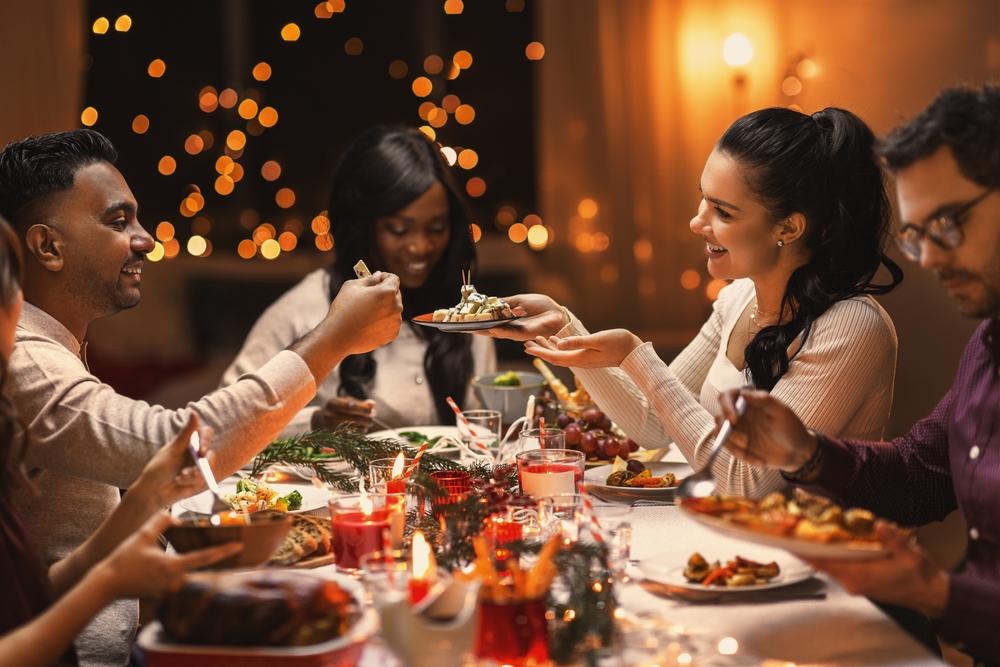Embracing Festive Indulgence: A Psychological Perspective on Holiday Treats and Well-Being
During the festive season, the art of indulging in holiday treats plays a pivotal role in enhancing our well-being. This article delves into the psychological benefits of embracing festive indulgence, highlighting the importance of balance and the joy of shared experiences with family and friends.
The holiday season is a time of year when traditional foods and treats become more than just meals; they transform into conduits of joy, nostalgia, and connection. Understanding the psychological significance of these festive indulgences reveals the profound impact they have on our emotional well-being and social bonds.
The Subtle Power of Festive Foods in Social Connection
The connection between festive foods and social bonding is a well-documented phenomenon. Especially during festive occasions, and this can contribute to psychological well-being.
Participating in shared meals significantly elevates feelings of social inclusion and belonging. This enhancement in social connectivity is particularly evident during holiday gatherings, where the act of eating together can improve psychological well-being through enhanced social interactions.
Another aspect is how the act of sharing meals, especially during holidays, is pivotal in strengthening social ties and community building. This shared experience promotes a sense of togetherness and serves as a medium for effective communication and mutual understanding, playing a crucial role in fostering community bonds.
Furthermore, the role of traditional festive treats in these social interactions is also highlighted. These foods, often rich in cultural and familial significance, serve as catalysts in forging a shared sense of heritage and identity. The sensory experiences associated with these foods – their distinct tastes, aromas, and textures – are powerful in triggering collective memories and stories, which in turn strengthen social bonds and enhance the communal atmosphere.
The Role of Traditional Foods in Emotional Health
Traditional holiday foods, rich in cultural significance, do more than tantalise the taste buds. They play a crucial role in triggering nostalgia, evoking warm memories of past celebrations. This connection to our heritage and personal history through food is instrumental in fostering a sense of belonging and identity.
Culinary Bonding: Strengthening Social Ties
The act of sharing meals, particularly during festivities, extends beyond mere consumption. It becomes a ritual of unity, bringing together family and friends, thereby strengthening social ties. The shared experience of enjoying traditional dishes enhances communication, understanding, and ultimately, strengthens community bonds.
Festive Foods: A Sensory Journey to Shared Memories
The unique flavours, aromas, and textures of festive treats are powerful sensory triggers. They invoke collective memories and stories, enriching the communal atmosphere. Such shared sensory experiences are essential in creating a sense of togetherness and continuity, crucial for psychological well-being.
Festive Indulgence: More Than Just Eating
Mindful eating, particularly during the festive season, is an enriching practice that transcends mere consumption of food. It involves being fully present and engaged with the eating experience, appreciating the flavours, textures, and even the origins of the food. This mindfulness can transform a simple meal into a profound experience that not only enhances the enjoyment of festive treats but also contributes to better mental and physical health.
Steps to Practise Mindful Eating
- Start with smaller portions: Begin by serving yourself a smaller amount than usual. This encourages you to savour each bite and pay attention to your hunger and fullness cues, preventing overeating.
- Engage all your senses: Before eating, take a moment to appreciate the colours, textures, and aromas of your food. This sensory appreciation can heighten the overall enjoyment of the meal.
- Eat slowly and chew thoroughly: Take your time with each bite, chewing slowly and thoroughly. This not only aids in digestion but also allows you to fully taste and enjoy the flavours of the food.
- Eliminate distractions: Turn off the TV, put away your phone, and eliminate other distractions. This helps you focus on the eating experience, making it more enjoyable and relaxing.
- Acknowledge your response to food: Pay attention to how each bite makes you feel emotionally and physically. This can help in understanding your relationship with food and making more mindful choices in the future.
- Savour the moment: Try to be present in the moment, enjoying the company and the atmosphere, if you’re eating with others. Shared meals are not just about food, but also about the joy of being together.
- Express gratitude: Take a moment to be thankful for the food, considering the effort that went into its preparation and the journey it took to reach your plate. This gratitude can deepen your connection to the eating experience.
By practising these steps, mindful eating during the festive season can become a nourishing and fulfilling practice, enhancing not just the physical enjoyment of food but also contributing to emotional and mental well-being.
As we embrace the festive season, let’s remember the joy and wellness that mindful eating brings to our holiday tables. By savouring each bite, appreciating the moment, and connecting with our loved ones, we not only enhance our culinary experiences but also our overall well-being.
This holiday season, may your meals be a delightful journey of flavours and your gatherings filled with warmth and joy. Wishing everyone a season filled with happiness, health, and memorable moments. Happy Holidays!













